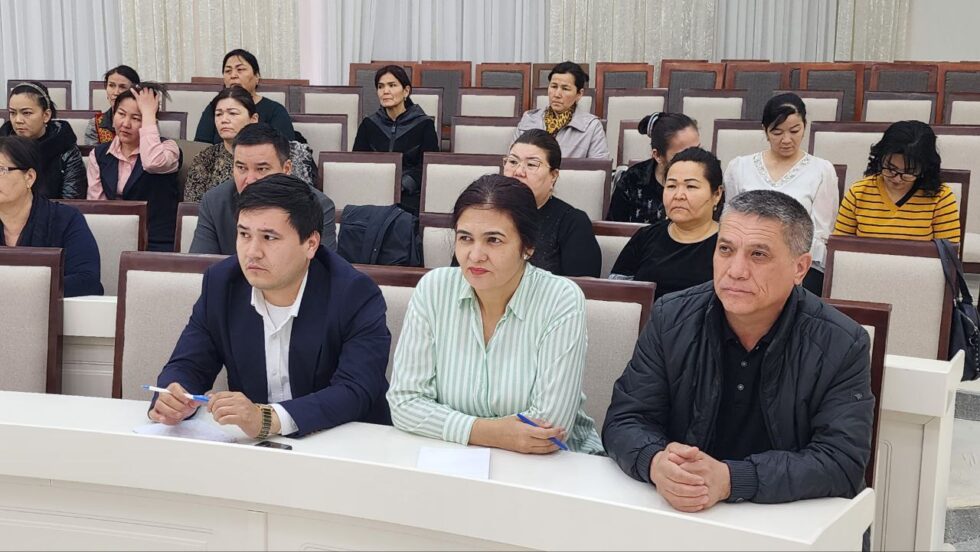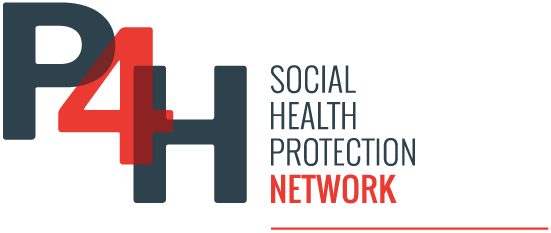The National Health Sector Policy 2016-2026
In a significant move towards achieving Sustainable Development Goals (SDGs) and Eswatini’s Vision 2022, the Ministry of Health launched a comprehensive 2016-2026 National Health Sector Policy to strengthen the country's health systems and advance Universal Health...
Eco-friendly revenues for healthcare: assessing the relationship between green taxation, public health expenditures, and life expectancy in China
The study explores the relationship between green taxation, public health expenditures, and life expectancy in China. It employs fixed-effect and system GMM regression models, revealing that green taxation positively influences life expectancy. Additionally, public...

Indonesia’s Health Ministry unveils new funding initiative for climate-resilient health system
Indonesia's Health Ministry, in collaboration with the United Nations Development Programme (UNDP) and the World Health Organization (WHO), unveiled a new funding initiative to build a more climate-resilient health system.According to Asia News Network, reported by...

Results of the 2023 audit by the Health Insurance Fund: almost 700,000 euros claimed back
The Health Insurance Fund recovered nearly 700,000 euros from healthcare providers last year through continuous monitoring of health insurance claims. "This control has improved partners' awareness when billing for treatment, reducing unjustified claims," said Jelena...
The association of a disability-targeted cash transfer programme with disability status and healthcare access in China
In 2015, the Chinese Government launched a cash transfer for the disabled in difficulties and caring for people with severe disabilities. This study investigates the association between China's disability-targeted cash transfer programme and disability status, as well...

Kazakhstan opened a national center for orphan diseases
The Republican Center for Orphan Diseases (RCOD) started its work on June 1st of 2024, marking a contribution to children's health on the International Childrens' Day. The main goal of the center is to improve medical care and quality of life for patients with rare...
Long-term care financing: lessons for low- and middle-income settings: Brief 7: Promoting quality and value in long-term care
Improving the quality and safety of long-term care for older adults in low- and middle-income countries requires robust quality assurance frameworks, comprehensive data collection, and inclusive research practices- WHO Centre for Health Development. This policy brief...
Reconciling devolution with health financing and public financial management: challenges and policy options for the health sector
Effective devolution, health financing, and public financial management are crucial for advancing universal health coverage, and targeted policy solutions can address existing challenges in these areas across seven Asian and African countries. This paper published in...
The advocacy coalition of sugar-sweetened beverage taxes in Indonesia
This study aims to generate insights into the actors involved in the discourse of sugar-sweetened beverages (SSB) tax adoption in Indonesia to inform their advocacy and communication efforts using the Advocacy Coalition Framework and Discourse Network Analysis. Since...
Assessing catastrophic health expenditure and impoverishment in adult asthma care: a cross-sectional study of patients attending six public health clinics in Klang District, Malaysia
This study aims to estimate the incidence of catastrophic health expenditure and medical impoverishment among adult patients with asthma in primary care settings and to examine factors associated with the risk of financial catastrophe in Klang District, Malaysia....
Hospital response to a new case-based payment system in China: the patient selection effect
In China, a new case-based payment method called the ‘Diagnosis-Intervention Packet’ (DIP) under the global budget was introduced for inpatient care. This study aims to explore the impact of DIP payment reform on hospital selection of patients undergoing total...
A qualitative assessment on the acceptability of providing cash transfers and social health insurance for tuberculosis-affected families in Ho Chi Minh City, Vietnam
In Vietnam, an intervention called the "cash transfer UHC+ intervention" combined cash transfers with social health insurance (SHI) for people with drug-susceptible tuberculosis (TB). This study assesses the acceptability of a social protection package containing cash...

Seminar dedicated to introduction of state health insurance held in the Republic of Karakalpakstan (part of Uzbekistan)
The phased implementation of the state health insurance system is underway, with intensive preparations in the Republic of Karakalpakstan. During a seminar for medical workers in Nukus, information was shared about the benefits and conveniences of the system,...
Brazil: Conditional cash transfers for health treatment affect low-income families
The results of the analysis of the impact of Brazil's Bolsa Familia conditional cash transfer program on the health of non-beneficiary households living in poverty are presented.It analyzes whether the health requirements of the Bolsa Familia BF program lead to a...

France introduces P4H to Health Development Partners’ Meeting in Guinea
Chaired by the WHO representative, the meeting gathered several P4H members. Representatives from the European Union and the United States Agency for International Development said they were preparing an important health system programme with a health financing...
